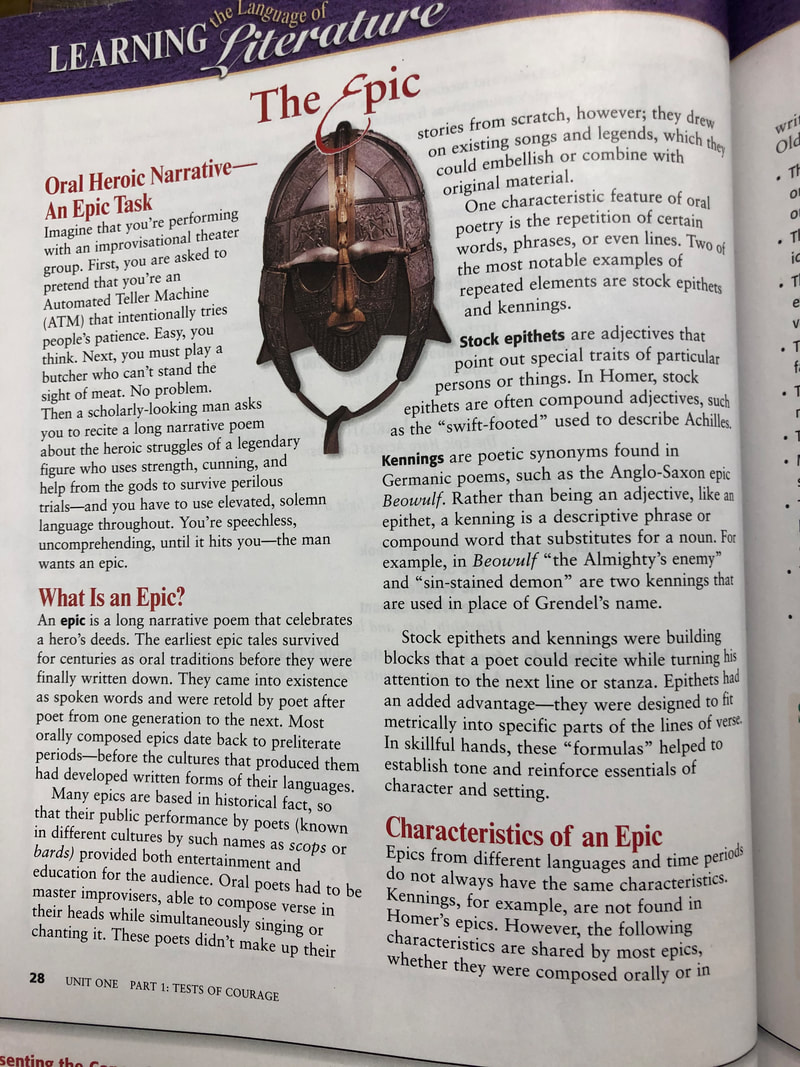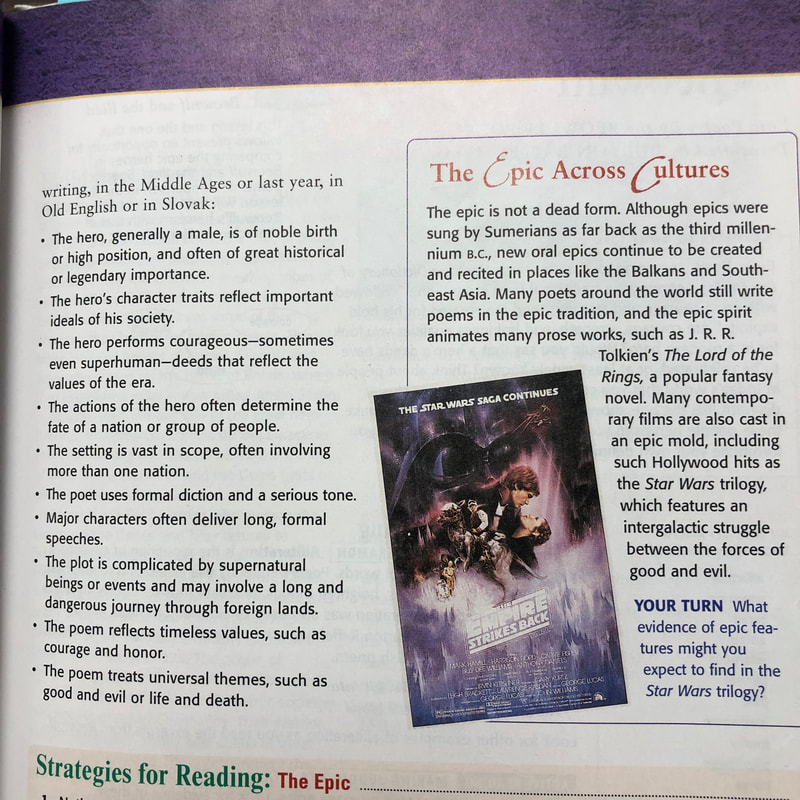Anglo-Saxon Period
Background
Mr. Osborne (who we'll see a lot) introduces us to the first unit, along with some of its gross over-generalizations:
Woah... That's a lot of information! Let's break it down a little bit with this PowerPoint:
Your browser does not support viewing this document. Click here to download the document.
So, Rome invaded and then a bunch of Germanic tribes and then the Normans from France?
Yep, yep, and yep.
The invasion of the British Isle by the Angles, Saxons, Jutes, and Frisians marks the beginning of the Angle-Saxon Period in (roughly) 449 CE.
Fortunately, we have some live footage:
And then the Norman Invasion (Yes, the English were once French!) serves as the end of the era. What was the year again???:
Wow! All of those invasions must have left their mark on the English language, right?
How astute of you to ask, imaginary student. Yes, yes they did, as demonstrated in this first installment of "The History of English in 10 Minutes":
The Epic
Beowulf
So, you say Old English is quite a bit different than Modern English?
Ummm... you decide. Here are the opening lines of Beowulf in its original text. See if you can make out any words that you know.
Your browser does not support viewing this document. Click here to download the document.
A little different, eh? Now compare that to the modern translation.
Your browser does not support viewing this document. Click here to download the document.


